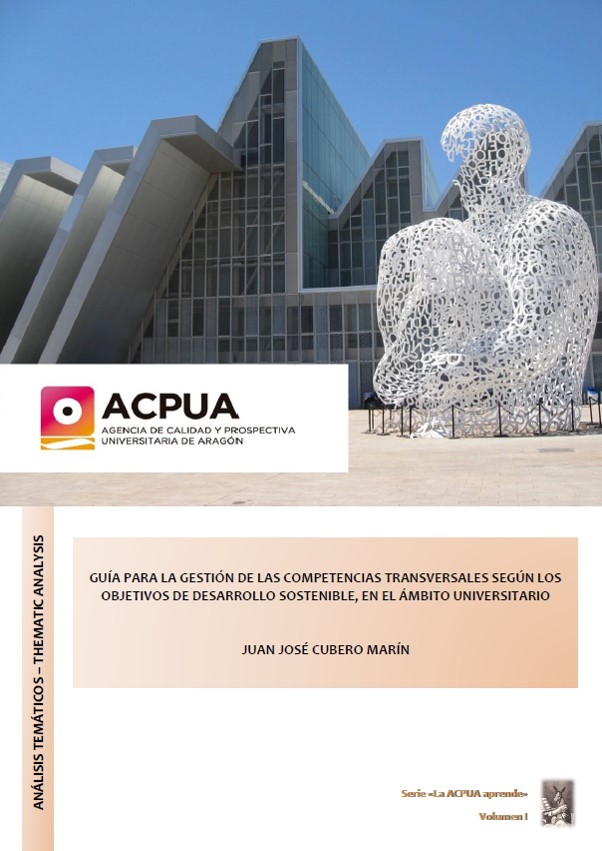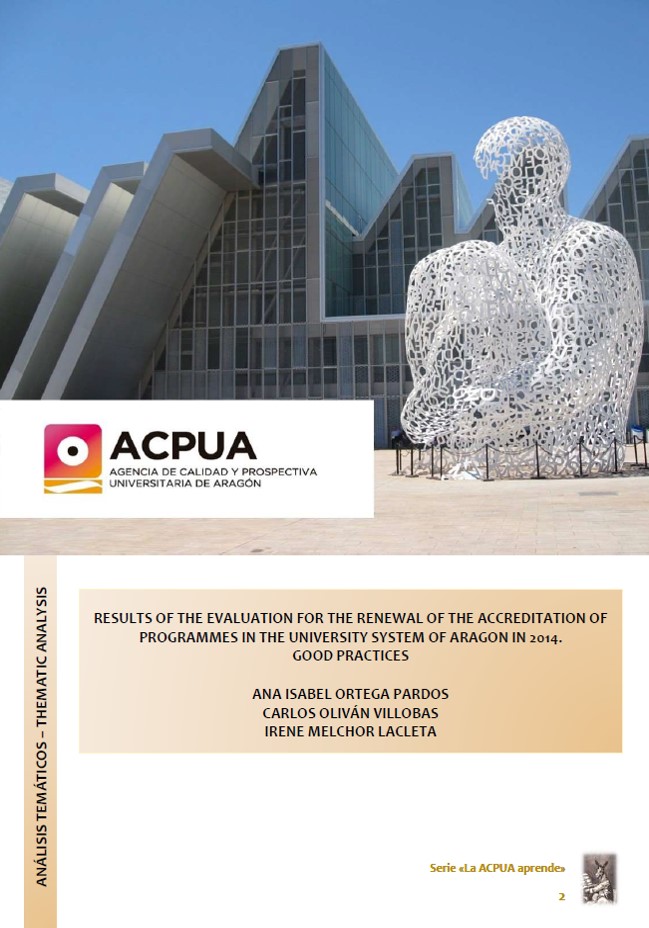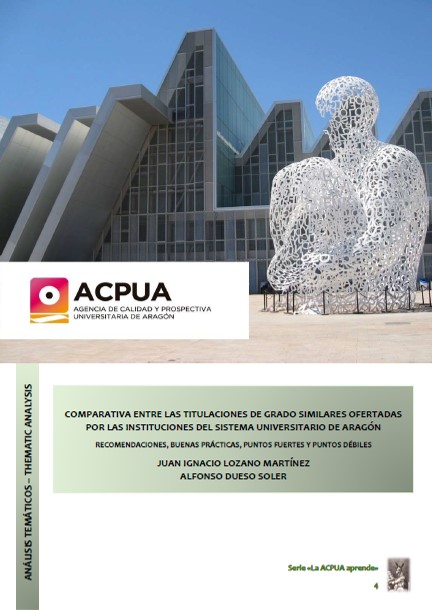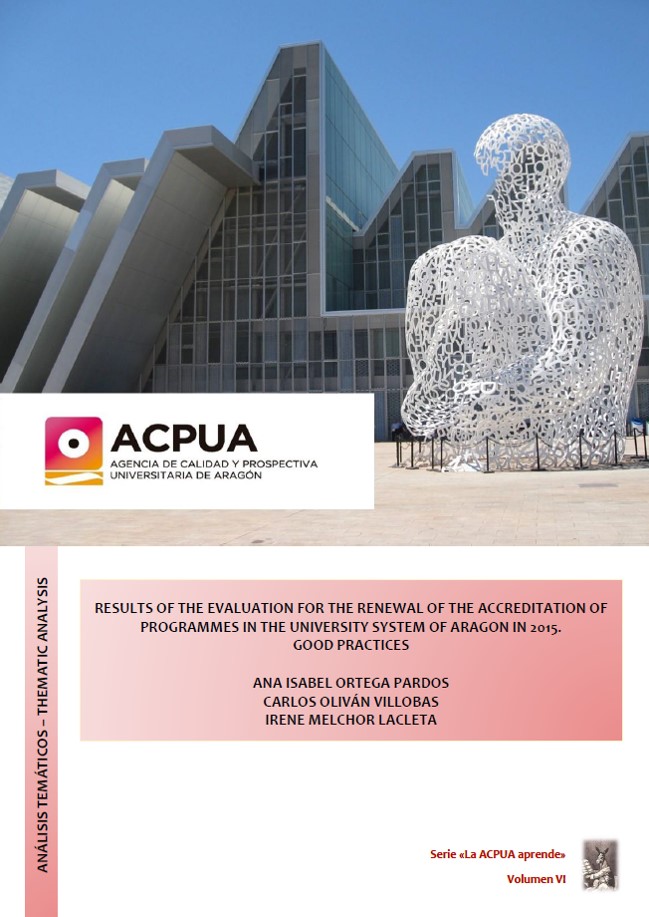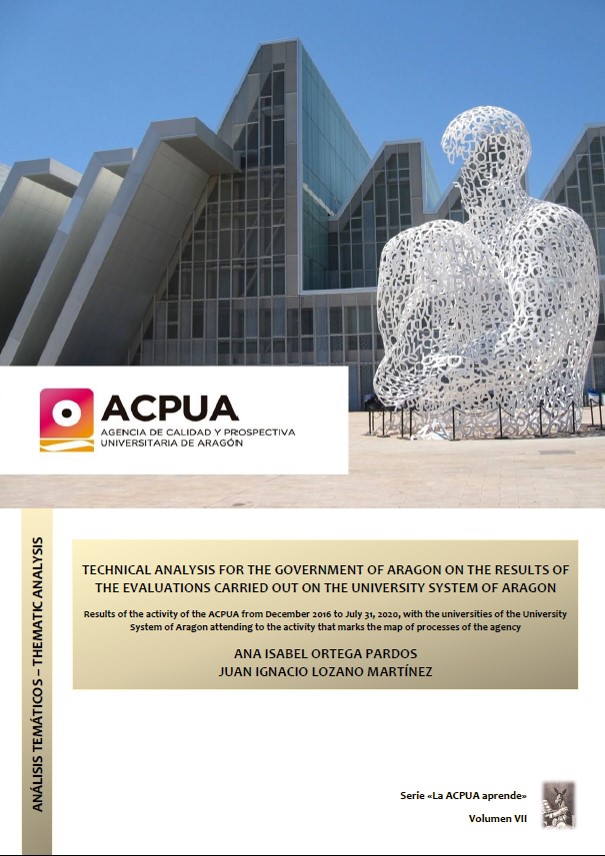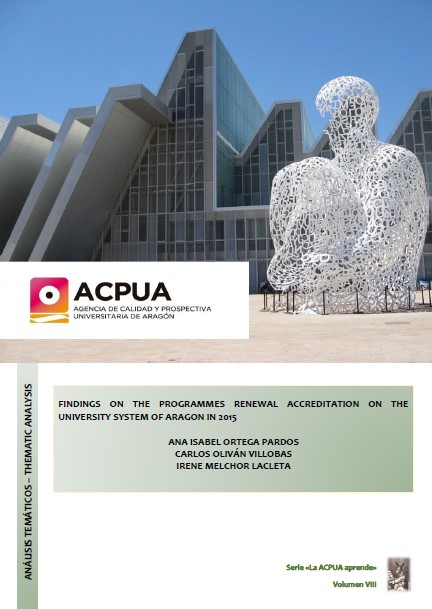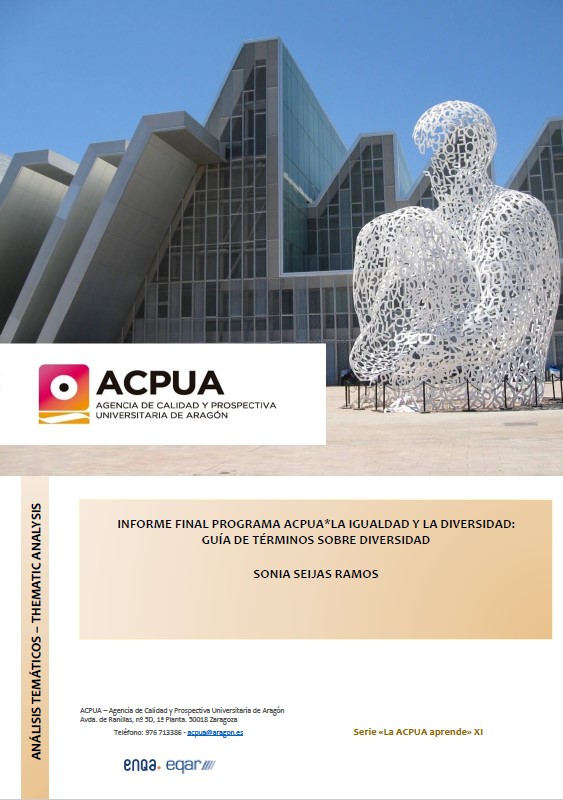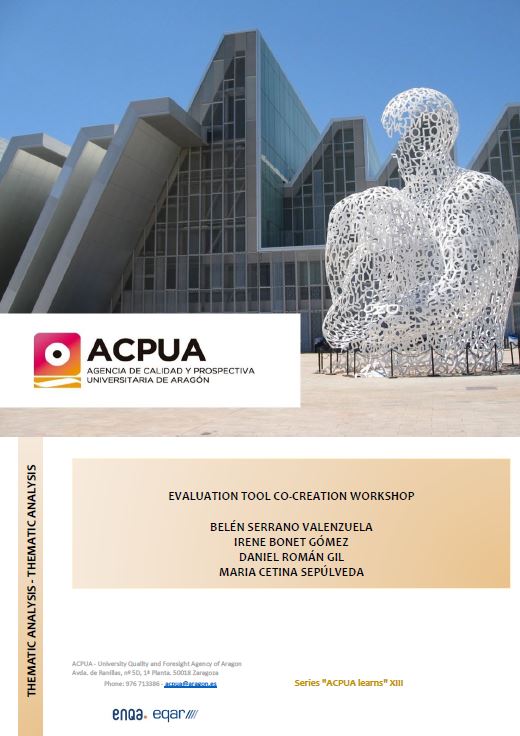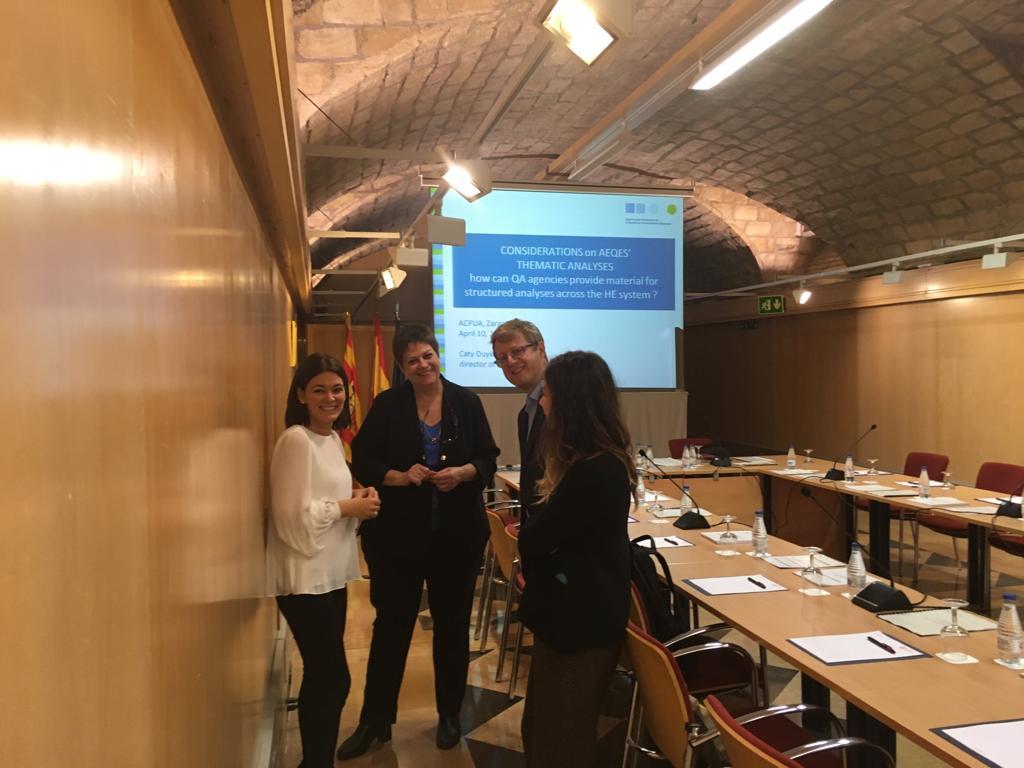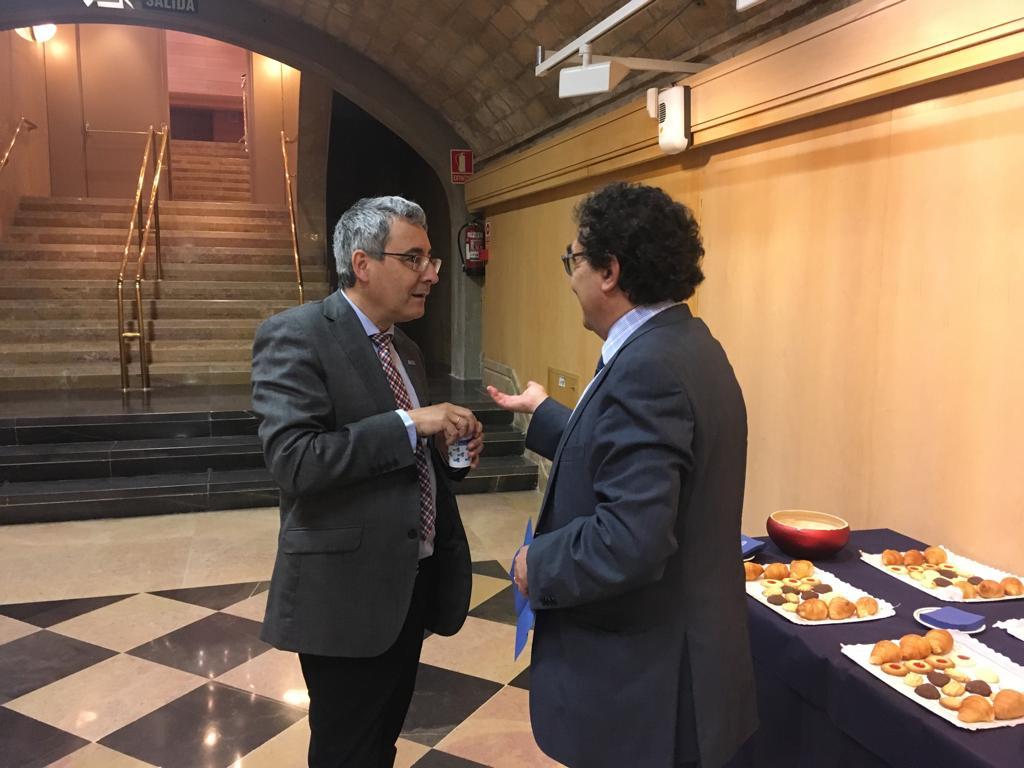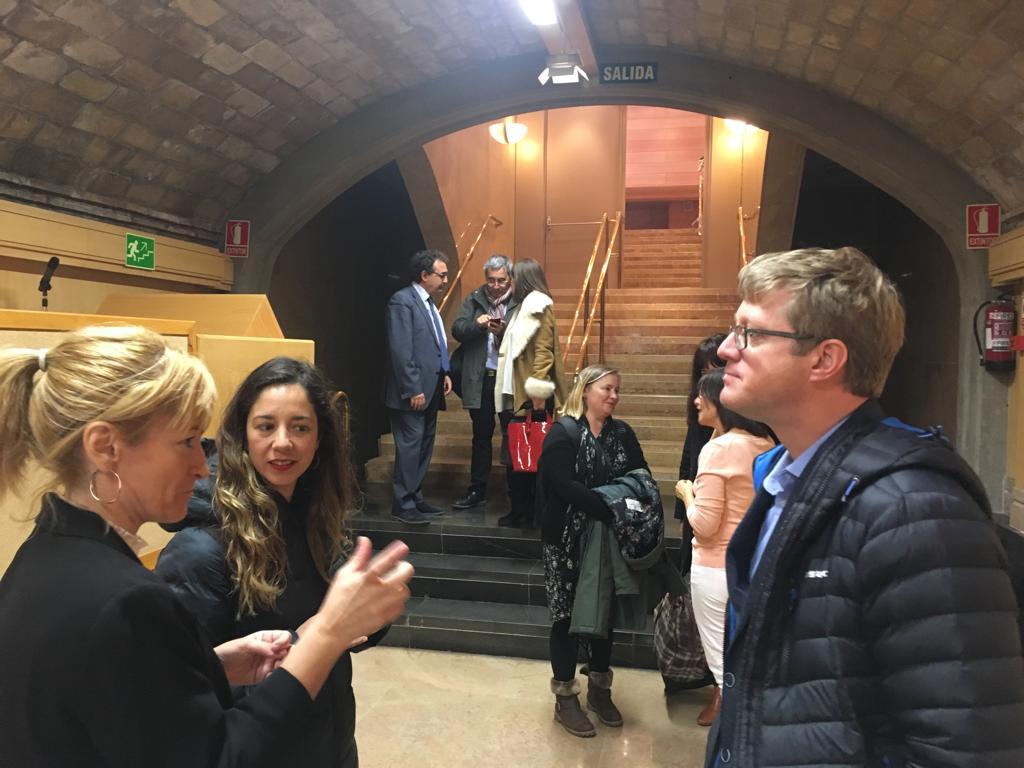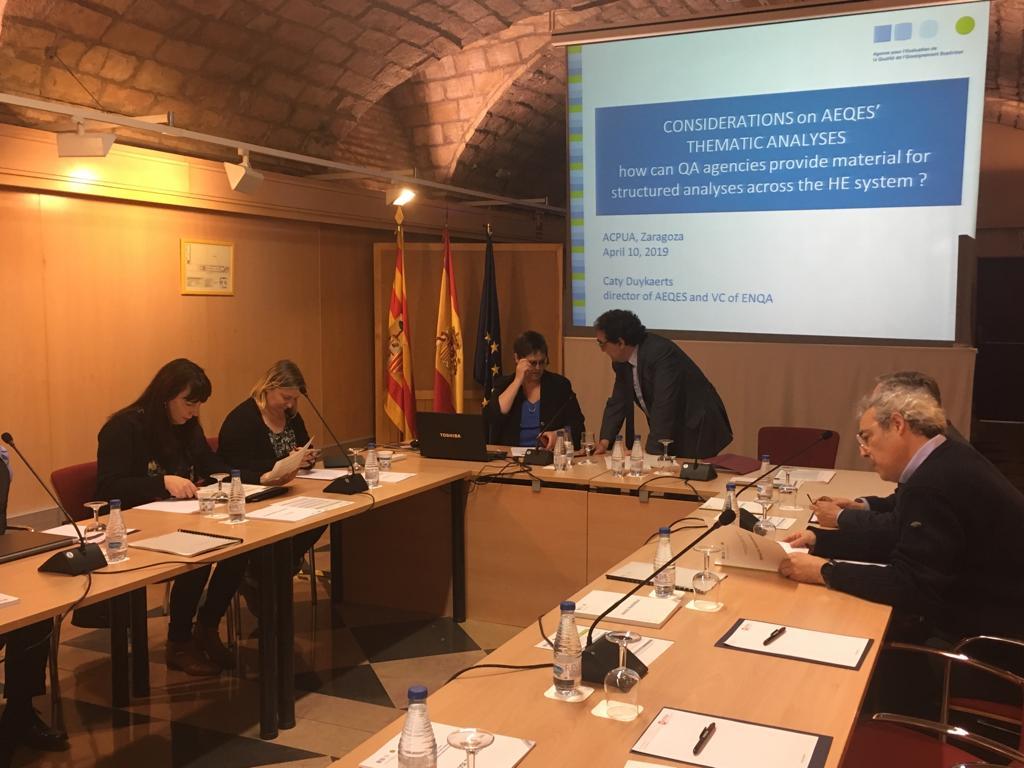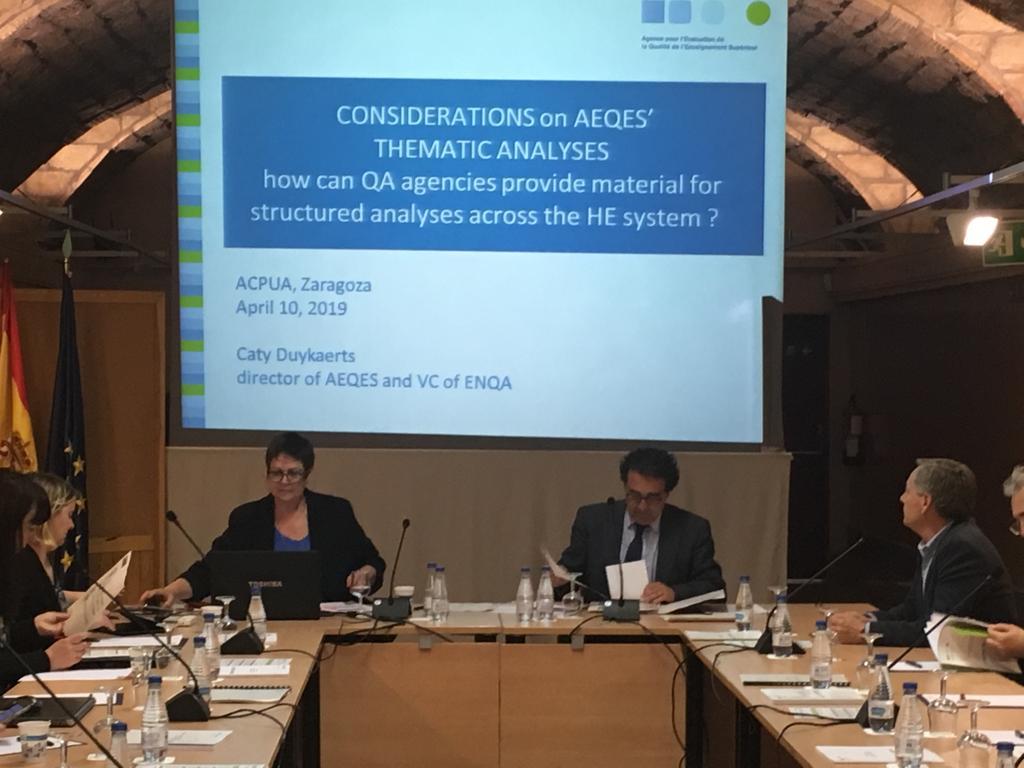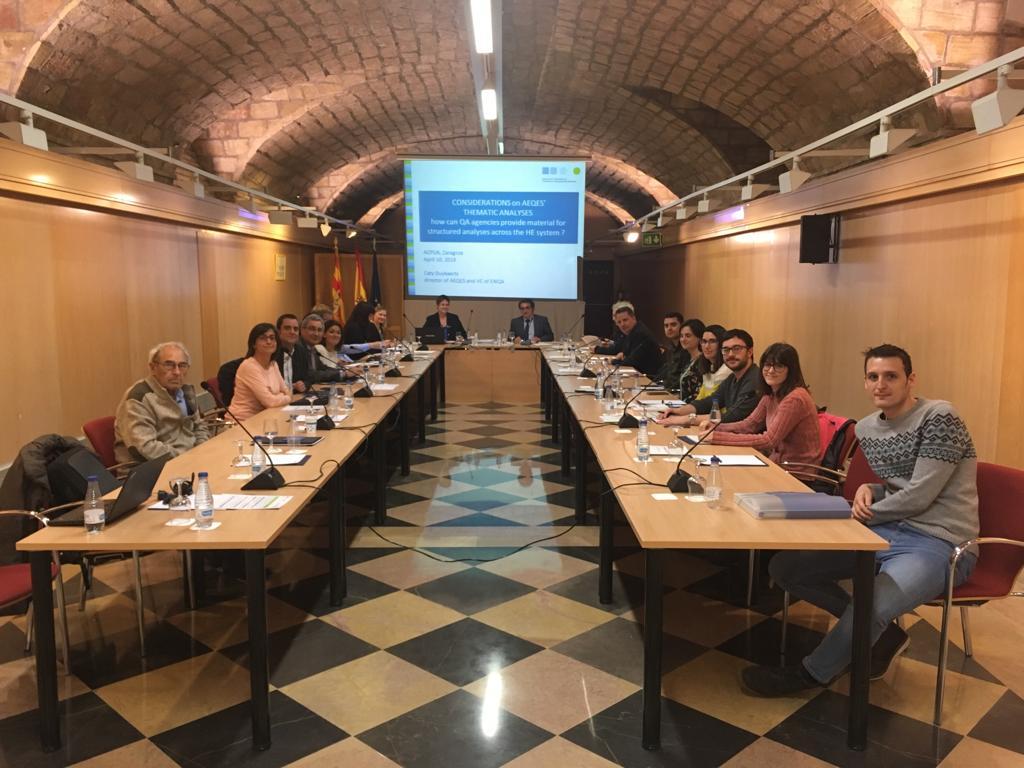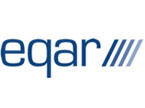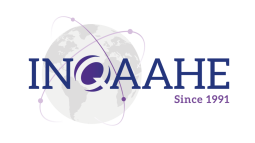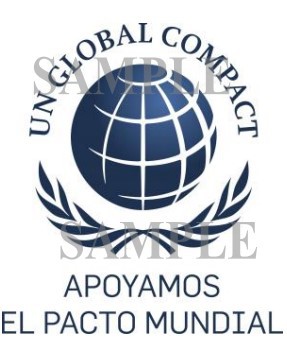With REACU
Thematic analysis (in coordination with REACU)
What in the European language of quality is called thematic analysis (that is, second-order studies, beyond accreditations or certifications, and which agencies undertake based on the data or results obtained in their evaluations) constitutes one of the areas of activity that the agency wants to strengthen. Even more if you take into account that compliance with this standard usually presents difficulties to all agencies -including ACPUA- that have either been submitted or are undergoing evaluation international according to the new ESG.
For the reasons stated above, at the meeting of the Spanish Network of University Quality Agencies REACU, held on November 13th, 2017, the decision was made to make joint reports that responded to the guidelines established for Criterion 3.4 of the Standards and guidelines for quality assurance in the European Higher Education Area (ESG), approved by the EHEA Conference of Ministers of Education, on May 15th, 2015. For this purpose, a working group (Working Group 1) was created, which coordinates ACSUCYL and of which ACPUA, UNIBASQ, ANECA and AQU are part.
The carrying out of joint thematic analyses aims to develop these lines of analysis:
a) Results obtained by the agencies in the evaluations for the first renewal of programmes, paying special attention to the recommendations set out in the reports (and in particular those concerning teaching staff, learning outcomes and/or material and service resources).
b) Data resulting from the reports on the IQAS of universities and centers.
c) State of public information and levels of transparency, especially in relation to effective monitoring and information to students.
d) Sustainability of certain programmes.
Based on the agreements adopted at the REACU meeting of February 26th 2019 (information in attached files), joint progress is expected in the following lines of analysis:
• Academic staff. Criteria that must necessarily be overcome to obtain a favorable evaluation.
• Internal Quality Assurance System (SGIC). Criteria whose certification is a requirement to achieve institutional accreditation.
Archivos adjuntos
THEMATIC Webinars
THEMATIC Webinars about Higher Education in coordination with Spanish Quality Assurance Agencies
FIRST WEBINAR: NURSING STUDIES
On September 30 took place the webinar "The current challenges of nursing studies in our country", organized by the Agency for Quality and University Foresight of Aragon (ACPUA) in collaboration with other regional agencies of university quality (AQU, ACCUEE, ACSUCYL, DEVA-AAC and Unibasq). It was attended by academics and quality experts from the agencies, as well as from the National Conference of Deans of Nursing and the General Council of Nursing who addressed the topic both from the current international perspective and from the social and employment needs.
This webinar is the first of a series that will be offered by the ACPUA and the aforementioned regional agencies on the current challenges of university education in Spain.
Link to AQU and to the materials of the webinar Nursing (Spanish)
SECOND WEBINAR: TOURISM STUDIES
On December 2 took place the second session of the webinar series "The challenges in university education according to the employer group" organized by the Agency for Quality and University Prospects of Aragon (ACPUA) in collaboration with other regional agencies of university quality (AQU, ACCUEE, ACSUCYL, DEVA-AAC and Unibasq) and that on this occasion dealt with "The case of the studies of Tourism".
It was attended by academics and technicians in quality of the agencies, as well as representatives of the business sector and university graduates of the degree in Tourism who discussed what should be the specific areas of improvement for university training in Tourism, addressing the issue both from the current international perspective, although focused on the challenges of the immediate environment, and from the social and employment needs.
Summary made by ACCUEE agency (Spanish)
Link to AQU and to the materials of the webinar Tourism (Spanish)
THIRD WEBINAR: INFANT EDUCATION AND PRIMARY EDUCATION STUDIES
Studies in Infant Education and Primary Education (third Webinar of agencies on the challenges of university education)
Last February 24, 2021 was held the third Webinar jointly organized by the quality agencies of Catalonia (AQU), Andalusia (DEVA-AAC), Canary Islands (ACCUEE), Castile and Leon (ACSUCYL), Basque Country (Unibasq) and Aragon (ACPUA) on Challenges of university training from the employers' perspective. This time this virtual seminar was dedicated to university studies in Early Childhood Education and Primary Education, and during the seminar data on the survey of employers conducted in Catalonia by AQU were presented and discussed, as well as strengths and weaknesses of these degrees from the information extracted from the evaluation reports of the agencies organizing the event, plus Galicia (ACSUG). These presentations gave way to an important debate in which the Faculties of Education, the educational administration and the quality agencies themselves were represented.
Both the materials and the recording of the event, which was presented by Antonio Serrano, director of ACPUA, can be found following the link (spanish):
Link to AQU and the materials of the webinar Education (Spanish)
FOURTH WEBINAR: COMPUTER AND TELECOMMUNICATIONS STUDIES
On May 12th, 2021, the fourth Webinar was held, jointly organized by the quality agencies of Catalonia (AQU), Andalusia (DEVA-AAC), Canary Islands (ACCUEE), Castile and Leon (ACSUCYL), Basque Country (Unibasq), Galicia (ACSUG) and Aragon (ACPUA) on Challenges of university education from the perspective of the employer group. This virtual seminar, in its fourth edition, was dedicated to university studies in Computer Science and Telecommunications.
During the seminar, data on a case study conducted in Catalonia by AQU was presented and discussed, with the presence, among other speakers, of Jordi Arrufí, Director of the Digital Talent program of Mobile World Capital Barcelona, who shared the theme of "Reorientation of the digital sector through higher level training specialties". Likewise, the strengths and weaknesses derived from the evaluations of these degrees, detected from the information extracted from the reports of the agencies organizing the event, were discussed.
Both the materials and the recording of the event, which was closed by Antonio Serrano, Director of the Aragon Agency for Quality Assurance and Strategic Foresight in Higher Education (ACPUA), can be found by following the link:
Link to AQU and to the materials of the webinar Computer and Telecommunications (Spanish)
FIFTH WEBINAR: JOURNALISM AND AUDIOVISUAL COMMUNICATION STUDIES
Last 17th of June 2021 was held the fifth Webinar jointly organized by the quality agencies of Catalonia (AQU), Andalusia (DEVA-AAC), Canary Islands (ACCUEE), Castilla y León (ACSUCYL), Basque Country (Unibasq), Galicia (ACSUG), Valencia (AVAP) and Aragón (ACPUA) on Challenges of university education from the employers' perspective. On this occasion, the webinar was dedicated to university studies in Journalism and Audiovisual Communication.
During the session, participants were offered an overview and update on this university education from the perspective of employers, presenting the results of a case study conducted in Catalonia. Also, the results of the evaluations of all the organizing agencies around these studies were shared with the consequent stimulus to share and discuss the specific areas of improvement needed.
Both the materials and the recording of the event, in which ACPUA's director, Antonio Serrano, participated as moderator of the debate, can be found by following the link:
Link to AQU and to the materials of the webinar Journalism (Spanish)
SIXTH WEBINAR: MASTER'S DEGREES IN TEACHER EDUCATION AND TRAININGN STUDIES
On 27 January 2022, the sixth webinar was held, jointly organised by the quality agencies of Catalonia (AQU), Andalusia (DEVA-AAC), Canary Islands (ACCUEE), Castile and Leon (ACSUCYL), Basque Country (Unibasq), Galicia (ACSUG), Valencia (AVAP) and Aragon (ACPUA), on Challenges of university education from the employers' perspective. On this occasion, the webinar was dedicated to the Master's Degree in Compulsory Secondary Education and Baccalaureate, Vocational Training and Language Teaching.
During the session, the more than 300 participants were offered a general and updated overview on this university education from the perspective of the employer collective, through the synthesis of the results of a case study conducted in Catalonia. The results of the evaluations of all the organising agencies in this area were also shared with the aim of finding out the strengths, as well as the areas of improvement through university quality standards.
The round table was attended by a number of important personalities. From ACPUA we facilitated the collaboration of Alejandra Cortés, current Director of Quality and Teaching Innovation of the Vice-rectorate of Academic Policy of the University of Zaragoza and expert in educational issues, as a speaker at this round table. In addition, a first-year graduate student, an Education Inspector and the President of the Deans of Education at the national level also took part.
Link to AQU and to the materials of the webinar Master´s Degree Teaching (Spanish)
ACPUA Learns
SUA
The ACPUA and the change management in the University System of Aragon (SUA): From recommendations to good practices
Main conclusions of the study:
- The ACPUA's external evaluation activity has been issuing numerous recommendations and identifying good practices
- As the implementation of the degrees has progressed, the number of good practices detected has approached the number of recommendations issued.
- Some of the global recommendations made to the University have been taken into account in its educational programming and in the deployment of its quality systems.
- The ACPUA has de facto become a facilitator of the changes in the University System of Aragon.
See presentation paper of the study (International Congress on Learning, Innovation and Competitiveness (CINAIC) 2014)
These results were presented in two forums in 2014: at the International Congress on Learning, Innovation and Competitiveness (CINAIC) and in the UZ Teaching Innovation Conferences.
AEQUES
Presentation and debate in ACPUA: the thematic analysis of the Belgian agency AEQES
Last 10th of April 2019, and within the framework of ACPUA seminars on QA in Higher Education, Caty Duykaerts, Vice President of ENQA and Director of the AEQES (Agence pour l'Évaluation de la Qualité de l'Enseignement Supérieur) explained the activities, methodologies, publications and results conducted and obtained by her agency regarding thematic analysis (ESG 3.4). To the presentation, -followed an interesting and lively debate- in which not only the Vice Chancellor for Academic Policy of the University of Zaragoza and other professors and students of this university and the Public University of Navarra participated, but also directors and technicians of several Spanish QA agencies, such as ACSUCYL, Unibasq, Madrimasd Knowledge Foundation or AVAP.


